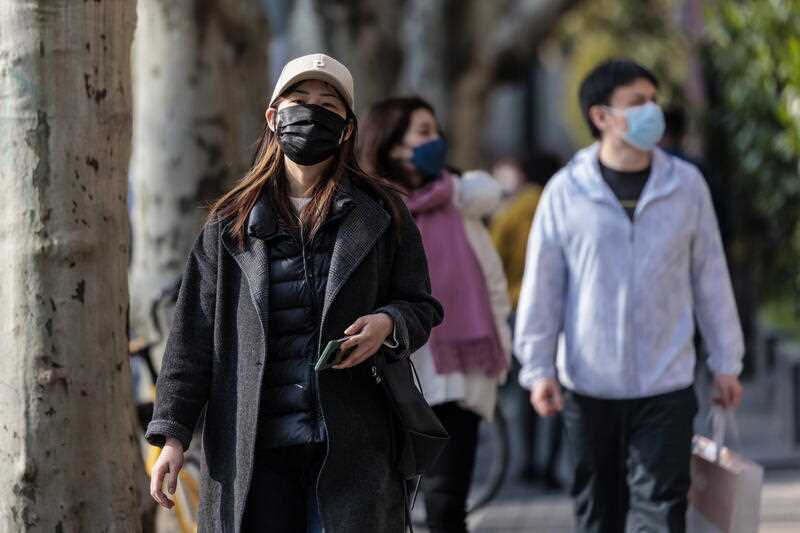China’s financial hub of Shanghai has launched a two-stage lockdown of its 26 million residents, closing bridges and tunnels, and restricting highway traffic in a scramble to contain surging COVID-19 cases.
The snap lockdown, announced by Shanghai’s city government on Sunday, will split the city in two roughly along the Huangpu River for nine days from Monday to allow for “staggered” testing.
It is the biggest COVID-related disruption to hit the city.
While residents east of the Huangpu were confined to their homes, those in the west stockpiled groceries and other essential goods as they prepared for a similar fate starting on April 1, with delivery services overwhelmed and supermarkets running low on supplies.
“Many wholesale markets are now closed,” said Bi Yingwu, a 50-year old stallholder. “Some vendors are reluctant to buy in vegetables. If we cannot get vegetables from wholesalers or the wet market is closed, we are finished.”
The lockdown order marks a turnaround for Shanghai’s authorities, which as late as Saturday denied the city would be locked down as it pursued a more piecemeal “slicing and gridding” approach to try to rein in infections.
Wu Fan, a member of Shanghai’s expert COVID team, said recent mass testing had found “large scale” infections throughout the city, triggering the stronger response.
“Containing the large scale outbreak in our city is very important because once infected people are put under control, we have blocked transmission,” she told a briefing, adding that testing would be carried out until all risks were eliminated.
Though still low by global standards, Shanghai recorded a record 3,450 asymptomatic COVID cases on Sunday, accounting for nearly 70 per cent of the nationwide total, along with 50 symptomatic cases.
Nationwide, there were 5,134 new asymptomatic and 1,219 symptomatic cases on Sunday,the health authority said in its regular bulletin.
Wu told a briefing on Saturday that Shanghai could not be locked down for long because of the important role it played in the national and even global economy.
But following Sunday’s about-turn, mass testing has disrupted transport, healthcare and a wide range of economic activities, with citywide land sales also halted on Monday.
Shanghai’s Public Security Bureau said it was closing cross-river bridges and tunnels, and highway tollbooths concentrated in the city’s east until April 1.
The bureau said traffic controls would be implemented on highways into and out of the city, and people leaving would have to show a negative nucleic acid test taken within the previous 48 hours.
Shanghai also said on Sunday it would suspend public transport, including ride-hailing services, in locked down areas. It also ordered the suspension of work at firms and factories, exempting those offering public services or supplying food. Some hospitals also suspended services as they release staff and other resources to assist with mass testing.
AAP
Get all the latest Canberra news, sport, entertainment, lifestyle, competitions and more delivered straight to your inbox with the Canberra Daily Daily Newsletter. Sign up here.



